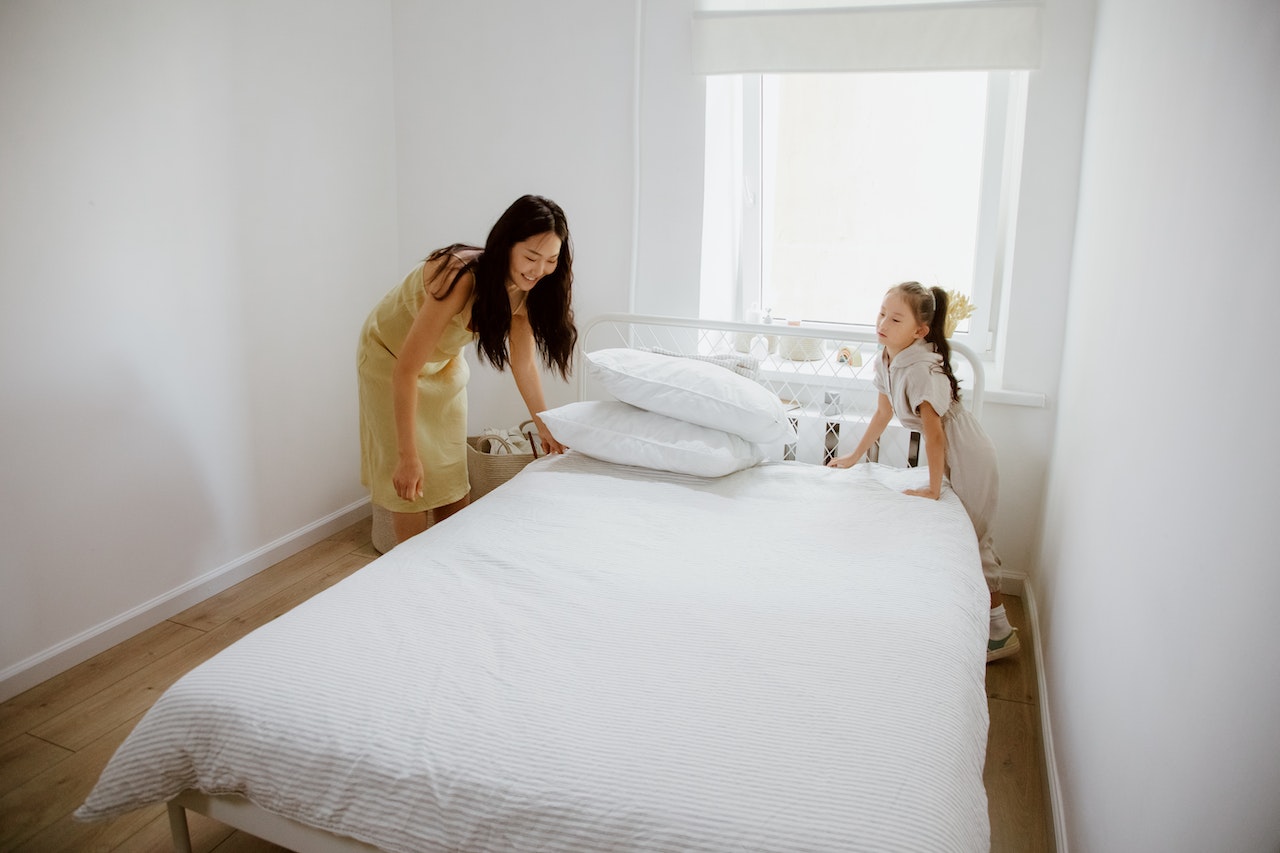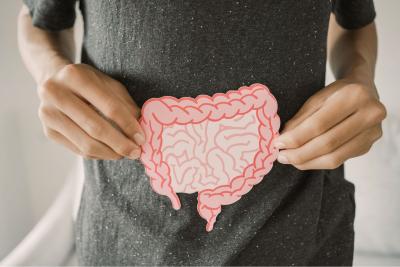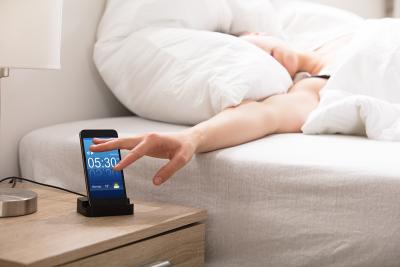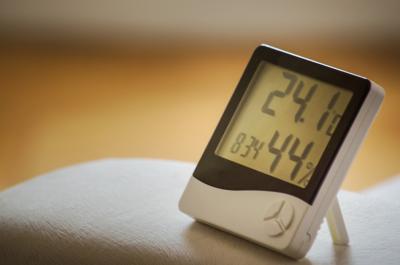White bedding is a popular choice as it compliments every bedroom colour, and it’s thought that the colour can promote a sense of calm and relaxation - exactly what you want in your bedroom.
But, if you have children or pets or spend a lot of time in bed, you will recognise the battle in keeping your sheets white.
White bedding can show stains easily, which isn’t necessarily bad as it reminds us to wash them regularly. But if you are wondering how to clean them while still keeping their colour, you’ve come to the right place.
How to keep your bedding white
As your sheets and even white mattress are exposed to body oil, sweat, and any products you use - such as fake tan or moisturiser - your sheets, even pillows and duvets, can gradually turn yellow. But you can take steps to keep your bedding a crisp white.
Why does white bedding turn yellow?
You are not alone if you have noticed yellow stains or general discolouration on your duvets or pillows. Your duvets and pillows can turn yellow over time, which is normal, mainly as they absorb liquids that come into contact with them. Sweat, skincare and body lotions (particularly those that have not had a chance to absorb into your skin) can leave yellow stains. Even the position you sleep in can lead to more moisture build-up.
Those who sleep on their side or front are more likely to drool than back sleepers, which can be caused by teeth grinding and allergies. Your natural skin and hair oil can also contribute to the yellowing of your bedding as the material absorbs them.
Unfortunately, these stains can start harbouring bacteria and allergens - especially if your pillow or duvet is reaching the end of its lifespan - that can impact your health and sleep. Dust mites, dead skin, fungal spores and bacteria can live in old, unwashed pillows and trigger hay fever symptoms. In more severe cases, you could experience asthma signs, ultimately affecting how well you sleep at night.
The best natural whitening products for bedding costing £1.17 per wash
If you have noticed your bedding turn yellow, there are natural products you can use to reverse the yellowing and reclaim those crisp, white bedsheets.

1. Use white vinegar for whitening your sheets for 10p per wash
White vinegar has whitening capabilities, but make sure you opt for distilled white vinegar as it is the cheapest choice and has no components that can bleach and stain darker clothing (if you were to use it for that).
White vinegar - which you can get for around £4.20 or 10 per wash as you can get 40 washes out of this bottle - also acts as a natural softener, which is ideal for your bedding if you are looking for more natural products, while also keeping your bedding soft enough to curl up in during the night.
To use white vinegar, add around 125ml to your washing at the beginning of the cycle (this roughly translates to half a cup in US measurements). Or, you could soak them in white vinegar and warm water before washing them. Don’t worry about the smell either, as the smell will wash out during your cycle.

2. Use baking soda for 27p per wash to tackle sweat stains
Contrary to popular belief, these ingredients work better apart than together. Baking soda is an effective cleaner for cutting through stains, particularly grease (ideal for those who like to eat takeaways in bed). The acid in white vinegar, on the other hand, can remove any residue left on your bedding from prior washes or your skincare routine. It can also prevent pet hair from clinging to your bedding if you share it with pets.
If you prefer baking soda, it is excellent for removing mild stains on bedding. You can add this to your washing machine without damaging the drum, as it has whitening capabilities. Some state it isn’t as effective as white vinegar, though. Leave your clothes to soak in warm water and baking soda before washing them - use around the same measurements you would for white vinegar.
Alternatively, if you have deeper stains such as blood or red wine, you can create a baking soda paste (baking soda with water), cover the stains in the paste, and leave it to sit. This works particularly well for sweat stains; you can leave the paste on for 1-2 hours.
You can get bicarbonate of soda (or baking soda) for around £2.50 or 27p a wash, as you need around four tablespoons to make a paste.

3. Lemon juice is also an effective and fresh-smelling solution for £0.80
There’s nothing quite like the fresh smell of lemons to brighten your day. Did you know it can also brighten your whites?
Using lemon juice, which you can buy for just 80p, add around 120-240mls (depending on the level of the stain) to the washing machine before you set it off on a cycle. Alternatively, you can do the same with our suggestion for white vinegar and, add the lemon juice to a concentration of warm water and leave your bedding to soak.
Lemon juice works better on some stains than it does others - such as grease, food or protein stains, including bodily fluids like sweat - and you need to be careful if using this method on darker bedding, as it could bleach dark bedding if you hang it out to dry and expose it to sunlight. However, it does not have this effect on white bedding.
You can also use lemon juice to clean your washing machine by adding it to your soap drawer and running the wash on a hot cycle.
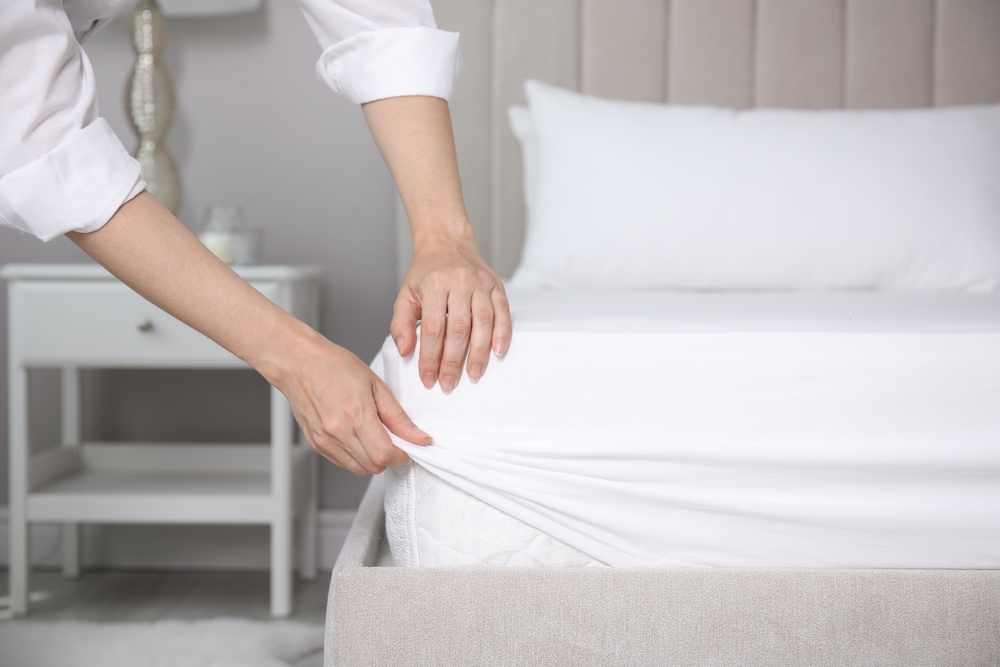
Washing and drying tips for keeping your bedding white
Alongside the above tips, there are steps you can take when you first notice a stain, even drying your bedding to keeping your sheets white.
1. Always run a stain under cold water
Before you start opting for natural products to whiten your bedding, your sheets - or your pillow or duvets - must undergo the ‘cold water treatment’ first. Using hot water on protein-based stains can make them spread further, which is why cold water is best used for:
- Sweat
- Urine
- Blood
- Milk
- Colourful foods from eating in bed
When you notice a stain, your best bet is to strip the bed straightaway and run it under cold water for the best possible removal chance.
2. Put down the bleach and step away
You might be tempted to use bleach, mainly as videos on TikTok share that you should use it to whiten your bedding. However, chlorine bleach can react with protein-based stains - such as sweat or urine - and cause yellowing, the opposite of what you want.
If not washed correctly, bleach could also leave a residue on your bedding that could cause skin irritation. This could be even worse if you use moisturiser or tan each night, and those build up together - providing an ideal breeding ground for bacteria.
To avoid this, wash your bedding weekly and, if possible, add an extra rinse cycle to remove any remaining residue from your detergent.
3. Avoid adding dryer sheets when drying your bedding
According to one TikToker who provides tips for keeping sheets white, adding dryer sheets to your bedding load can have the opposite effect on your sheets, making them appear dull.
The chemicals in the sheets can leave your bedding covered in a residue which can build up, helping bacteria to build up and, potentially, cause stains, leaving them a dull white. The same TikToker also said to go easy on the detergent due to leaving residue.
4. Dry outside, if possible, to stop colour from fading
This isn’t always possible, but where you can, dry your white bedding outside. Drying on a very high heat can cause the colour to fade, leaving your whites dull. As we suffer from heat damage, so do your sheets, which can burn and stain. However, the sun can naturally whiten sheets when hung outside, so leave them on the line where possible for a couple of hours.
Drying for too long can also damage the fabric, cause your bedding to shrink, and leave you with a whole host of wrinkles to smooth when making the bed.
5. And don’t forget to vacuum your mattress weekly
Don't forget about the mattress when you strip the bed to wash your sheets. It would be best to hoover the mattress whenever you wash your sheets to remove any dead skin cells, dirt or crumbs.
Taking care of your mattress will also help protect your bedding, particularly if you spot any stains which could affect your white bedding. Just as you do for your bedding, you should take care of your mattress, and you can read even more of our expert tips on how to clean a mattress.
6. Shower before bed to remove any sweat or body oil that can stain sheets
If you have been to the gym, put on moisturiser, sun cream or even fake tan, you’ll likely have that ‘tacky’ feel to your skin. But if you don’t shower that off your skin, that moisture can pass from your skin to your bedsheets and even your mattress and pillows. As that moisture builds up, it can stain your sheets, making them dull and yellow.
The more moisture builds up on your bedding, mattresses and pillows, the more bacteria can build up. Warmth and moisture are an ideal breeding ground for bacteria, which means if you don’t air and wash your bed regularly, more bacteria can build up on your sheets.
7. Wash your bedding separately
Avoid washing your white bedding with towels or other clothing that might damage the delicate fabric and leave stains to run. For instance, if you have heavily stained white towels, don’t wash them with your white bedding to prevent this from spreading.
Similarly, overloading the washing machine with items alongside your white bedding can leave them covered in a residue from your detergent that can dull the colour of your sheets.
Finally, if you wash and store your bedding as you swap your bed covers, you should avoid plastic storage. The plastic could emit gases that can stain your bedsheets and leave them yellow.
If you are wondering where to put your bed sheets when they are clean, we have seven expert tips for storing your bedding. Or, you can see if it is time to throw out your bedding, pillows or duvets and take our bedding calculator.


